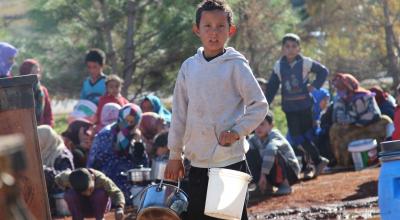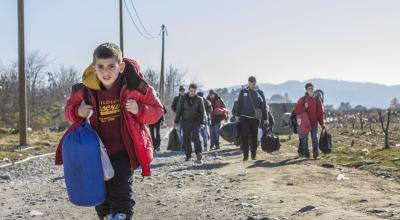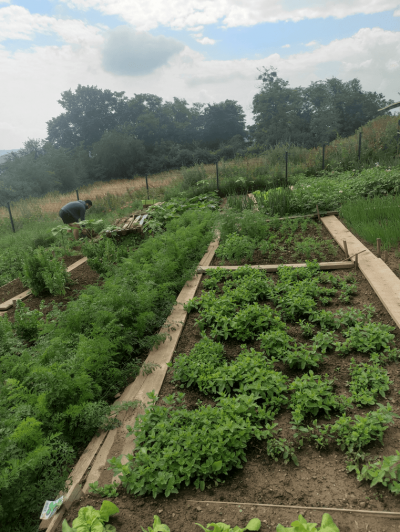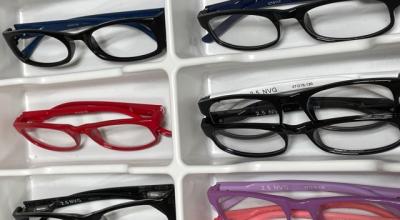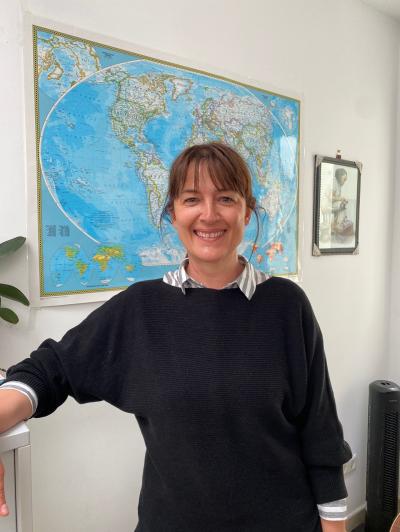
Refugees get a job thanks to job coaching
Friday 2 July 2021
Recently, volunteers from the Lions Club have been helping refugees from Caritas Luxembourg to find a job. Interview with Alex Bernard and Haabsan Ibraahim. Alex Bernard accompanies some refugees, including Haabsan Ibraahim who found a job thanks to this coaching.
How did you come to accompany refugees in their job search?
Alex Bernard:
I am a member of the Lions Club. The Lions Club has been organising fund-raising activities for various organisations for a long time. For the past two years, we have increased our support for refugees. For example, we give a merit scholarship to refugees who are admitted to the University of Luxembourg - 6 students currently receive such a scholarship - and we make our experience available to refugees who are looking for a job or an apprenticeship. It is not easy to find a job when you come from far away. You don't know the market, you don't know which doors to open, you don't know how to present yourself, you are often discouraged by all the administrative formalities. A year ago, we turned to Caritas Luxembourg to identify refugees who were interested in being accompanied and who were willing to invest themselves intensively, for a few months, in finding a job. Unfortunately, we cannot follow everyone. Accompaniment requires a considerable investment of time on both sides. At the same time, it is important for us that the person being supported has a family, because this allows us to help as many people as possible. That's how I came into contact with Haabsan. "
How did the support go?
Haabsan Ibraahim:
It went very well. I was surprised that I found a job so quickly, right from the first selection interview! Today I am very happy to have found this job, and a fixed-term contract at that. "
Where do you work?
Haabsan Ibraahim:
I work in a supermarket in Merl. I really enjoy it. I can tackle anything. I've already mastered all the positions and I can step in at any time and at any position if necessary."
How did it succeed on the first attempt?
Alex Bernard:
That's rarely the case. Usually you have to open about 20 doors. For Haabsan, several factors worked in her favour. First of all, her French, which she speaks perfectly, whereas in Somalia people don't speak French at all. In fact, during the selection interview, the boss was surprised that she had only learnt French when she arrived in Luxembourg. Secondly, Haabsan had experience in a grocery shop in Somalia and in grocery shops in Somalia you do everything: the cash register, stocking shelves, ordering, maintenance, etc. This flexibility is an asset for an employer. Finally, it must also be said that she was able to sell herself well during the interview, unlike many other refugees who are rather shy, reserved and don't dare to show off their skills. Another thing that I think was decisive was the fact that we chose together to target this particular supermarket. It was clear to me that Haabsan needed a company that was bigger than a grocery shop so that it could fit into a group, but at the same time it didn't need to be too big so that it wouldn't get lost. Where she is now is perfect for her and her integration. "
Why does it take longer for others?
Alex Bernard:
Every case is different. It often takes longer because of administrative problems. Sometimes we have to appeal to the court to rectify clerical errors made earlier. How do you expect refugees to sort this out on their own, without any support? Another reason is that some refugees come from countries where they have experienced repression and are not used to showing confidence, even less so during selection interviews. I work with them on all this and, even if it sometimes takes longer, the important thing is that they find work and, above all, work that will allow them to integrate into our society and in which they feel good. "
What has changed for you since you got this job?
Haabsan Ibraahim :
Everything has changed. When you are assisted, you always have to fill in papers, justify this and that, go from administration to administration, waiting in queues. Now I feel like I've passed into another system, a well-oiled system, where everything is done almost automatically. I don't have to justify myself all the time, to ask for papers. I am much freer. Everything is much easier. New doors have been opened. It's much better to have a job than to live on social assistance, that's for sure.
How do you see your future here in Luxembourg?
Haabsan Ibraahim:
I hope I can continue to progress not only in my job, but also in all other aspects of my life. At the same time, the most important thing for me is my children and I will adapt to their needs. "
What do you like about the coaching you do?
Alex Bernard :
It's the relationship we create with the person we are coaching. We don't work with anonymous people. We get to know the people, their families, and together we find the best solution. In addition, each person is different and so each time it is a new challenge, very enriching. Finally, I must say that each placement gives me incomparable satisfaction. Haabsan's husband has also just been placed. I am happy. So far, 5 refugees have been placed and 3 more should be placed soon. Of course, this kind of volunteer work is not for everyone. You need a lot of time, experience in recruiting people and contacts to open doors. But if you can, it's good."
An exemplary journey
Valérie Mahé, in charge of the socio-professional support of refugees at the LogIS service "Logement pour l'Inclusion Sociale" of Caritas Luxembourg, looks back at the exemplary progress of Haabsan Ibraahim.
Haabsan Ibraahim and her husband were one of the first families to benefit from socio-professional support within the framework of the "Neien Ufank" project, which was launched three years ago and is now integrated into the " Logement pour l'Inclusion Sociale " (LogIS) service. This support has enabled the family to become more and more autonomous and, above all, has enabled Haabsan to refine his professional project thanks to language courses and his professional experience in Luxembourg. This support has also enabled her to develop her social and professional skills, to blossom and to make more and more progress in her integration process, to such an extent that when Mr Bernard contacted us, we inevitably thought of Haabsan, whom we felt was ready to enter the first labour market thanks to all her efforts and investment. She was ready! "
Linked news
Donate
Your donation is essential to ensure the continuity of Caritas Luxembourg's actions in the service of the poor.
Other donation methods
